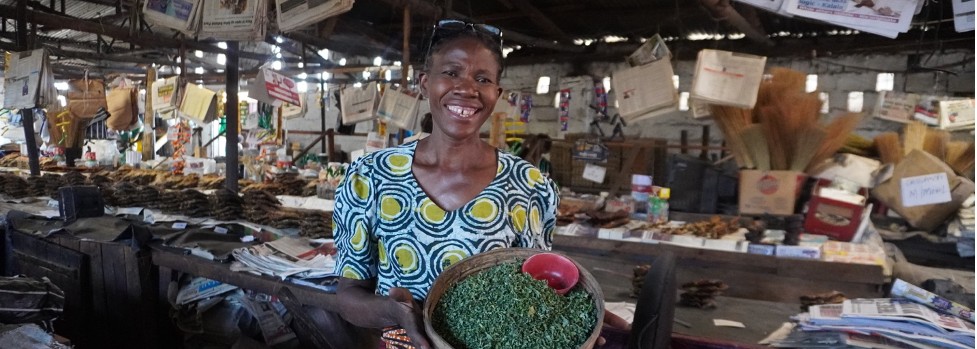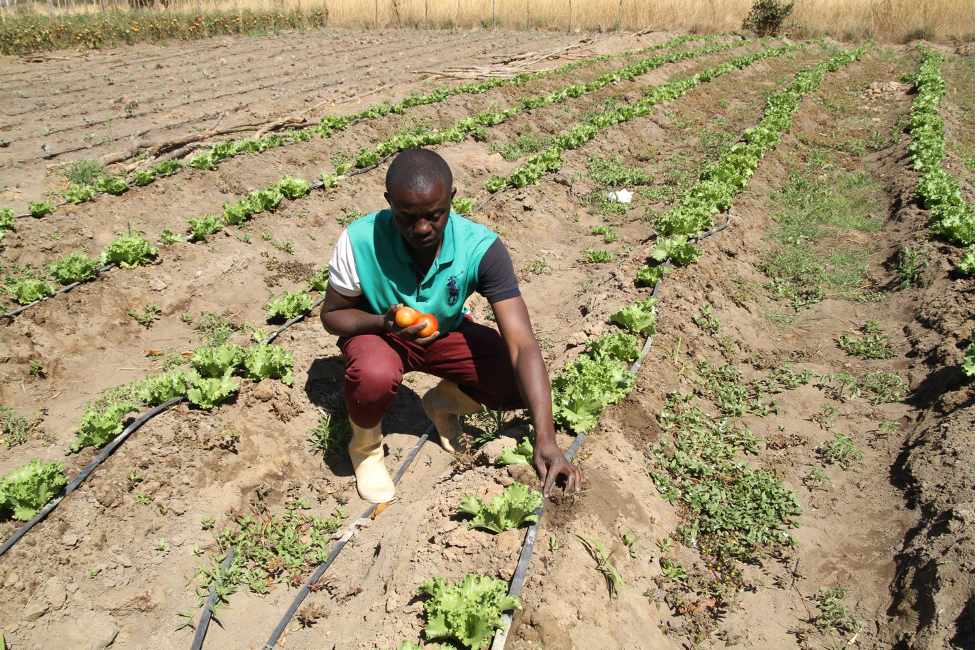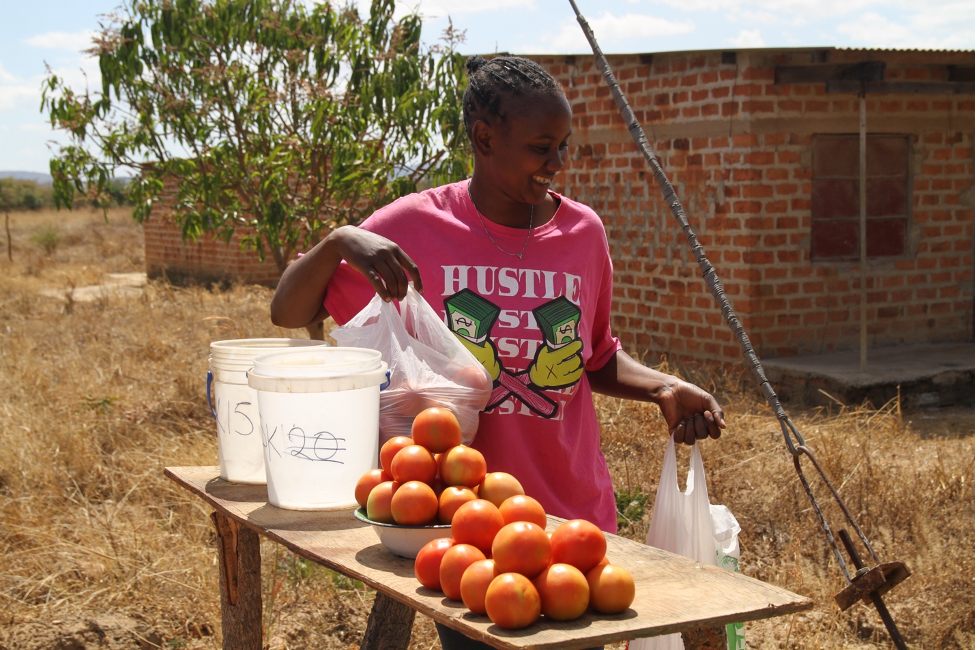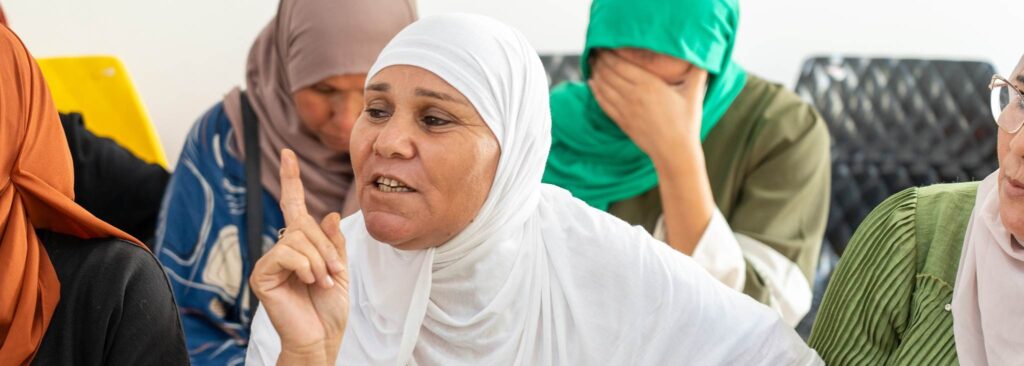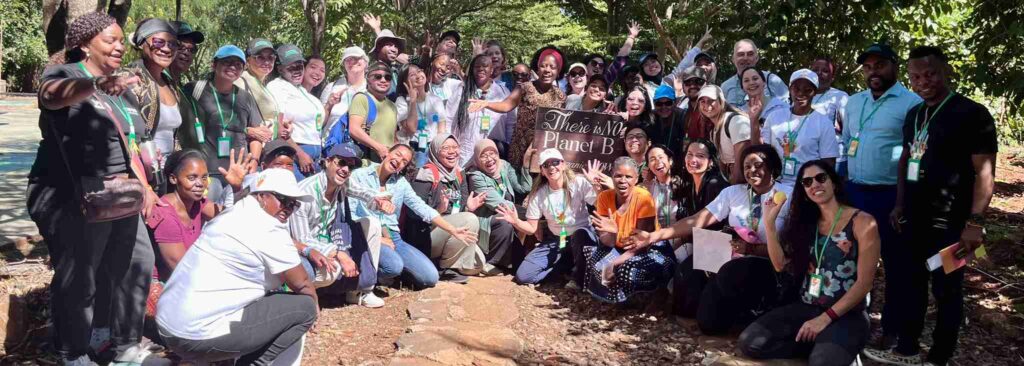In the late ‘90s, an agricultural resettlement scheme was established in Zambia’s Chongwe District as a response to the country’s economic crisis. Kanakantapa Ward in Chongwe has since become home to many small-scale farmers who sell their produce to consumers in the capital city Lusaka, some 55 kilometers away.
Kanakantapa has been a focus area of our Healthy Food Africa project. The project’s multiple partners use research and innovation to create more sustainable, equitable and resilient food systems in 10 African cities. Hivos works specifically in Chongwe and Lusaka.
Equipping farmers with the right information
Mwansa Mwila and his wife Nyuma Nyirongo are horticulture farmers in Kanakantapa. Their farm is a refreshing green oasis filled with maize and a variety of vegetables. At a time when most farmers in Zambia have been grappling with a major drought in the region, their land is a welcome sight.
“Because of the drought, the only solution is for us to rely on irrigation,” says Mwansa. “I mostly use drip irrigation but in other cases, I resort to furrow and flood irrigation. However, due to the long hours of power rationing, the irrigation frequency has reduced.”
The couple were part of Healthy Food Africa’s Chongwe Food System Lab which trained them, and many others, in sustainable farming practices and provided them with the right tools for the purpose.
“Before the training, I made terrible losses especially during harvest time. Much of the crop would go to waste due to the poor pre- and post-harvest practices. This project taught us about produce preservation, food processing and market linkages, a component which is crucial for our production. We also learnt how to avoid leaving chemical residues Ion the produce,” explains Mwansa.
Seeking government support
With the drought ravaging most arable land in Zambia, Healthy Food Africa’s solutions can only work with adequate support from the government. Part of the training farmers received focused on improving food chain efficiency, something which requires infrastructure and support from the state or other large investors.
“It’s a pity that the project is coming to an end,” Mwansa laments. “My family is eternally grateful for the knowledge acquired through the training. However, this is an opportunity for other players, including the government, to develop the farming communities further. This project should have covered a larger area around Kanakantapa and Chongwe so that more farmers, especially the youth, can learn the best practices of sustainable agriculture.”
They have since called on the Ministry of Agriculture to help smallholder farmers acquire credit from financial institutions as most banks require collateral.
Tricks and tips for better harvests
Another farmer in the area is Lydia Mtonga, who specializes in fruit production. She also grows a small portion of green vegetables, beans and chillies. The conservation farming, organic farming, and water harvesting techniques Lydia learned about in the Healthy Food Africa training led to major innovations on her farm.
“Before, most of my fruit would go to waste as they would all ripen at almost the same time. Now, I know how to dry them, how to make juice from my oranges, and how to process mangoes and tomatoes into paste. These methods are important to my success as a farmer,” she says.
No time to lose
It is estimated that total post-harvest losses in sub-Saharan Africa could amount up to 40% of total food production in volume. In Zambia, this can range from 30-40% due to poor storage and handling given limited access to related technology, tools, and infrastructure. The Healthy Food Africa initiative has been crucial in developing and teaching new agricultural methods and production techniques that make a difference for farmers, their profits, and the food value chain in Zambia. Now It’s time for the government and other relevant actors to step up to the healthy and sustainable food plate, especially as Zambia is facing the country’s worst drought in 40 years.
Our work continues
Hivos launched Urban Futures, a new global program working at the intersection of urban food systems, youth wellbeing, and climate action. Urban Futures operates in intermediary cities in Colombia, Ecuador, Indonesia, Zambia and Zimbabwe, supporting local partners and especially young people to drive more inclusive, climate-resilient cities and urban food systems. The program builds on experience from Healthy Food Africa.

